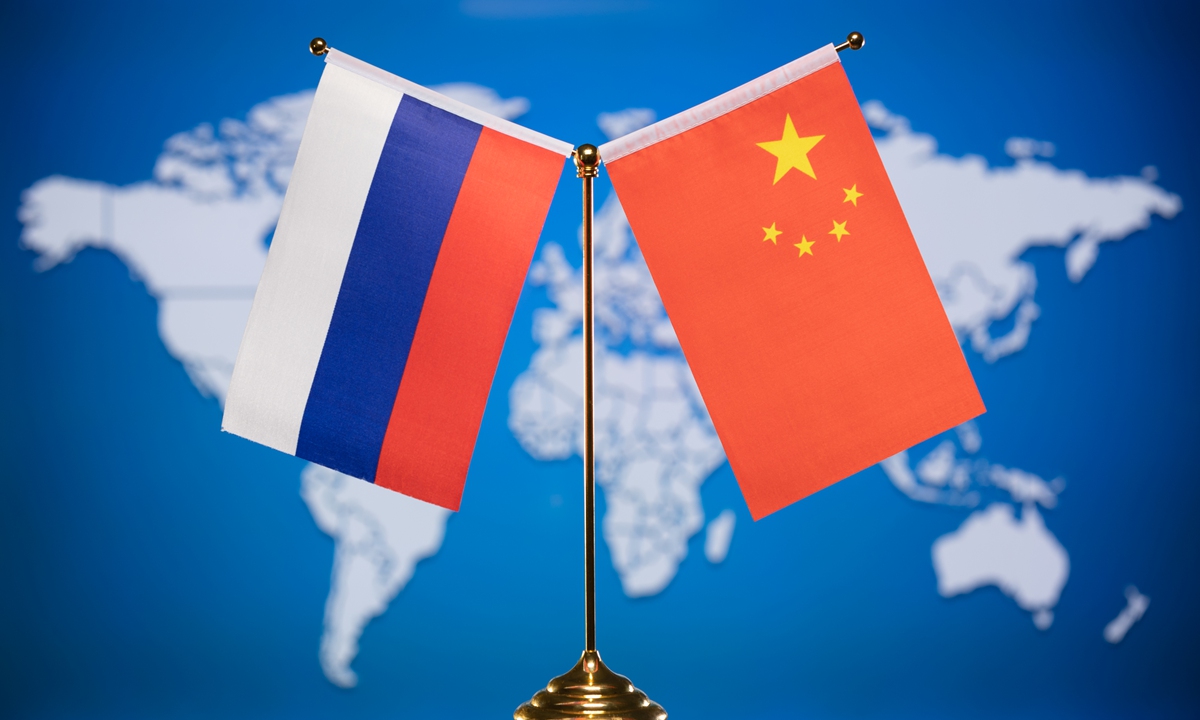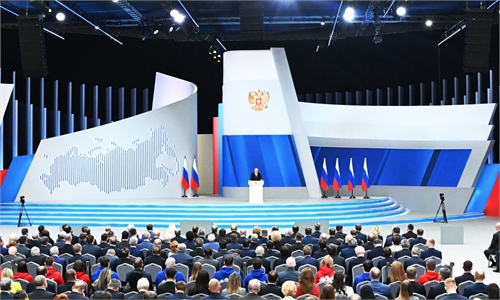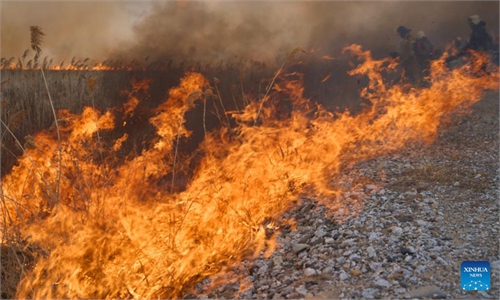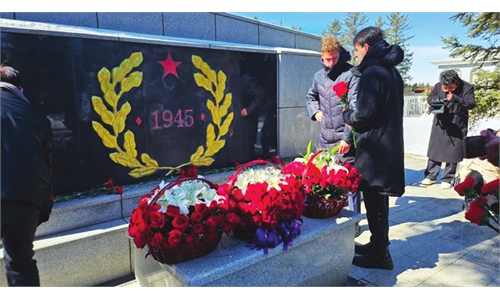China, Russia forged a new paradigm of major-country relations different from obsolete Cold War approach: Wang Yi

China Russia (file photo) Photo: VCG
China and Russia have forged a new paradigm of major-country relations that differs entirely from the obsolete Cold War approach, said Chinese Foreign Minister Wang Yi on Thursday, adding that the relation is of great value in maintaining global strategic stability.
Wang made the remarks at a press conference Thursday on the sidelines of the second session of the 14th National People's Congress.
Wang said the comprehensive strategic partnership of coordination between China and Russia in the new era is maintaining a high level of operation under the strategic guidance of two head of states, with political mutual trust continuing to deepen, with mutually beneficial cooperation and complementary advantages, and surging enthusiasm in people-to-people exchanges.
Last year bilateral trade volume reached a record high of $240 billion, surpassing the established target of $200 billion ahead of schedule, he noted.
Russian natural gas is fueling numerous Chinese households, and Chinese automobiles are running on Russia roads. All this shows the strong resilience and broad prospects of China-Russia mutually beneficial cooperation, Wang said.
Maintaining and growing the China-Russia relationship is a strategic choice by the two sides based on the fundamental interests of the two peoples. It is also what we must do to keep pace with the trend of the world.
China and Russia have forged a new paradigm of major-country relations that differs entirely from the obsolete Cold War approach. On the basis of non-alliance, non-confrontation and not targeting any third party, China and Russia strive for lasting good-neighborliness and friendship and seek to deepen their comprehensive strategic coordination, Wang noted.
Hegemony is unpopular and division has no future. Major countries should not confront each other, and the Cold War should not return, Wang emphasized.
He said that China-Russia relations adapt to the trend of multipolarity and democratization of international relations, and are of great value in maintaining global strategic stability, promoting positive interactions among major countries, and advancing cooperation among emerging powers.
What Wang said is of great wisdom against the backdrop of Ukraine crisis which expands the conflict between the West and Non-West worlds. If we regard Russia a representative of resisting the Western-dominated global political and economic processes, the conflict between Russia and Ukraine actually indicates that the confrontation between the West and non-West has reached a climax, Cui Heng, a scholar from the Shanghai-based China National Institute for SCO International Exchange and Judicial Cooperation, told the Global Times on Thursday.
By holding expectation toward China-Russia relation, Wang put forward his understanding toward major countries in the time when global confrontation has been expanding and the era theme of peace and development has been questioned, Cui said.
Despite this, China remains confident in peace, especially emphasizing that major powers like China and Russia have a responsibility for global security and development. Major powers should strengthen cooperation and avoid confrontation in order to prevent the world from returning to a Cold War state, the expert added.
This year marks the 75th anniversary of the establishment of diplomatic relations between China and Russia. We will jointly hold the China-Russia Cultural Year, facing new opportunities for the development of bilateral relations. China is willing to work with Russia to further cultivate new momentum for cooperation and continuously strengthen the friendly foundation between the two peoples, Wang said.
Russia is currently the rotating chair of the BRICS countries, while China will take over the rotating chair of the Shanghai Cooperation Organization in the second half of this year.
Both sides will enhance international multilateral cooperation, uphold true multilateralism, maintain the international system centered on the United Nations, and safeguard regional and global security and stability, Wang added.
Global Times



